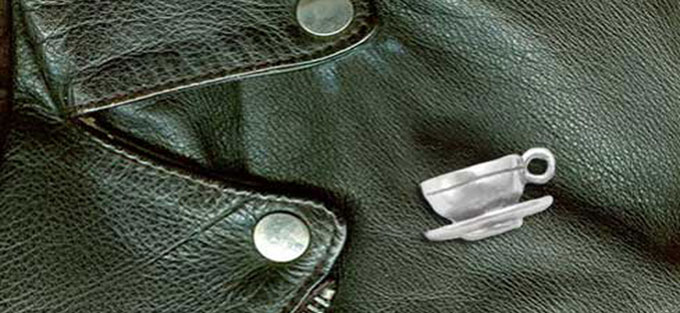by Karris Golden
What do you think of when you see someone riding a motorcycle on the highway? Do you think “rebel”? Have you ever dreamed of owning a bike? Do you ever think about the gleam of the chrome and the loud roar of the engine? The sound of a motorcycle is distinct to its make and model. Harley-Davidson, a legend in motorcycles, has built its reputation around its loud and unique sound. That thunderous rumble expresses emotion, passion, and enthusiasm. If your faith made a recognizable sound, how would others describe it? Would they think it was bold?
Loud and unique
Like a Harley-Davidson engine, is the sound of your faith the stuff of legends? Whether you are shy or outgoing, adventurous or cautious, your faith has a sound that transcends your personality. Do you turn up the volume of your faith? Or do you mute it or use it as background noise? Does the sound of your faith celebrate you–the unique, special child of God that you were made to be? Does your faith make a sound others want to listen to? follow? replicate? Is it a sound you want others to hear?
Uncommon Riders
Like the roar of an engine, America’s motorcycling cultures have spawned many uncommon rabble-rousers. There is the perception that motorcycling is a brotherhood, but without the sisters, it would have never become a lifestyle.
I like to ride my bike–a Harley-Davidson Springer Soft Tail. I know some may look twice at a woman of color tooling down the road on a bike. Some friends wonder about the apparent paradox of a woman who writes about faith “but” rides a motorcycle. Well, these stereotypes were shattered long before I rolled onto the scene.
The late Bessie “BB” Stringfield was perhaps the most accomplished motorcyclist of her day. Unfortunately, outside the world of hardcore motorcycle history buffs, BB isn’t well known. However, she is considered one of the 20th century’s “Heroes of Harley-Davidson.” Born in Kingston, Jamaica, BB was orphaned at age 5. An Irish couple in Boston adopted her. They gave her a deep sense of spirituality. BB often spoke of her faith and how it enabled her to ride motorcycles. She once told the Miami Herald that when she got on her motorcycle, she “put the Man Upstairs on the front.”
At only four-foot-three-inches tall, BB was an unlikely biker. However, she decided she wanted a motorcycle when she was 16. Her parents obliged, buying her a 1928 Indian Scout.
In BB’s day, motorcycles were tough to operate. Unlike modern bikes, early motorcycles had to be kick-started, vibrated badly, broke down frequently, and were tough to steer. Riders also had to be skilled in adjusting carburetors and chains.
Once the diminutive BB got the skills down, she had another obstacle to face: Nice women–especially nice black women–didn’t ride motorcycles.
BB disregarded such assertions.
Later dubbed the “Motorcycle Queen of Miami,” BB was a well-known racer and stunt rider. She once even disguised herself as a man and won a flat track race. Later, organizers denied her the prize when she removed her helmet. During World War II, BB joined the United States Army as a motorcycle dispatch rider.
BB’s journeys often took her to the segregated South, where she countered racism with dignity and class. Sometimes, she could not find a motel that accepted black guests. BB often said she relied on God to lead her to blacks who would put her up for a night. When a friendly family couldn’t be found, she used her jacket as a pillow and slept on her bike in a gas station parking lot.
According to the Harley-Davidson Hall of Fame, BB owned 28 motorcycles in her lifetime. She was a woman who talked openly about motorcycling and of her faith, and her story is one of many that completely contradicts a negative stereotype of the typical “biker.”
The beat of your own engine
Regardless of her looks, accent, or stature, BB was admitted into that unique group that travels to the beat of its own engine. She had every reason to keep her voice as small as she was, but she chose to be a loud, formidable presence. BB was a woman whose faith made noise. BB was a bold woman. The stories of women like BB keep me on the road. These role models sustain me when I encounter people who believe faith is a private thing we shouldn’t discuss publicly. They encourage me to travel to the beat of my own engine and to find my own sound.
I was ostensibly different as a child and often felt like an outsider. When I began riding, I wondered if I would find the motorcycling culture to be as troublesome as the groups in high school. Having come to terms with being “different,” I didn’t want to again worry about jumping through the hoops of acceptance.
As I met other riders, I realized they were often okay with whomever you decided to be. For many, you don’t have to ride a certain kind of motorcycle to fit in. You don’t have to wear a certain kind of clothes or talk a certain way. You just have to enjoy riding. Many of the people I’ve met along the way want to openly discuss their spirituality and faith, especially as it relates to motorcycling.
The sound of my faith is round and full and as loud as the wind. Maybe it’s too loud sometimes — but I don’t apologize. I don’t muffle this sound. I have listened to and released my sound, and I encourage you to do the same.
Karris Golden lives in rural northeastern Iowa with her daughter, Zoey. She writes a weekly newspaper column on faith, and several blogs. See more at www.KarrisGolden.com.
This article was originally published in the March 2007 issue of Café.

